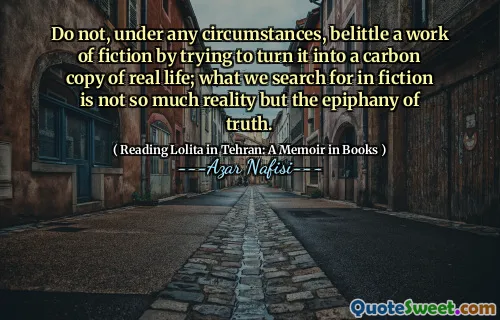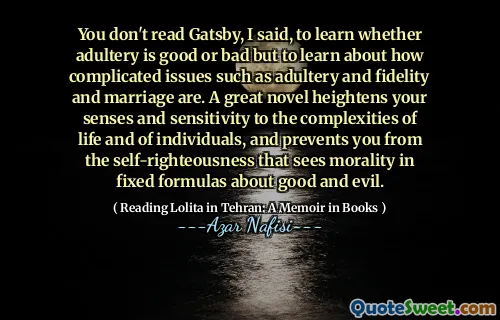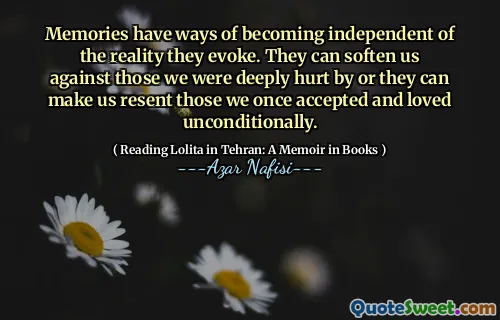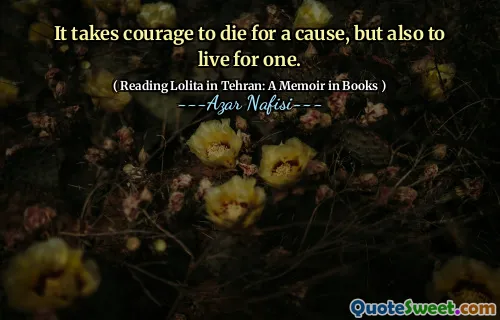
Some within the government and some former revolutionaries had finally realized that there was no way the Islamic regime could make us intellectuals vanish. In forcing us underground, it had also made us more appealing, more dangerous and, in a strange way, more powerful. It had made us scarce and, because of this, also in demand.
📖 Azar Nafisi
In her memoir, Azar Nafisi reflects on the realization among some government officials and former revolutionaries that the Islamic regime could not erase intellectual resistance. By pushing intellectuals into hiding, the regime inadvertently amplified their significance, making them symbols of defiance against oppression. This dynamic created a paradox where the act of suppression only heightened the allure and potency of these thinkers.
Nafisi illustrates how intellectuals, now more scarce, became sought after figures in society. This unintended consequence of oppression transformed them into powerful voices for dissent, showing that the more the regime attempted to silence them, the more resilient and appealing they became to the public. Their underground existence fostered a compelling narrative that challenged the status quo and inspired hope among those craving freedom.











